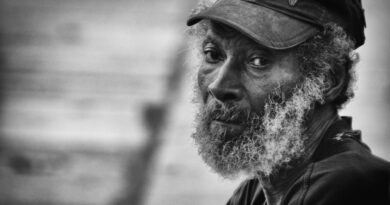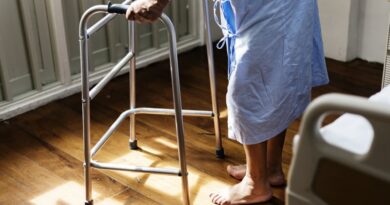Nursing Mission Statement Examples
The Royal College of Nursing (2003) has confirmed the importance of nursing in our society as it promotes health, healing and development and prevention of disease illness, injuries and disability. They also indicated that when people are sick the purpose of nursing is to reduce the level of distress and suffering and allow the patients to understand their disease processes as well as coping mechanism, treatment and implications (Royal College of Nursing (2003). Therefore, in articulating my mission statement I am going to draw on essential ways of knowing as described by Carper (1978) to inform my discussion. These four patterns of knowing include empirical, aesthetics, personal, and ethical ways of knowing.
My mission statement as Registered nurse is to provide compassionate care to all patients despite their nationalities, religion, gender, age, disability and other factors that may influence their health outcomes. It’s my personal belief that all human beings should be treated equally with care and integrity. Throughout the course of my three year study and clinical practice I have developed a caring attitude and I have found the importance of being appreciated by the patients when you have helped them through their illness hence in transition to RN practice I will provide a safe and competent care that not only satisfy clients need but also their families. I will ensure their well-being by following Australian Nursing and midwifery council guidelines that obligate me to provide safe and competent care.
In providing competent care, I will employ empirical knowing known as scientific knowledge. This knowledge is gained through nursing research based on scientific methods and rational, deductive thinking (Taylor, 2000). I will use this knowledge when assessing patients’ vital signs which are based on scientific facts. I will strive to use the scientific knowledge and information available in gaining the requisite factual knowledge. This means continuous consultation with my tutors and supervisors in learning what causes disease and first hand care that should be given. This knowledge is attainable both theoretically and also through clinical practice (Paley, et al., 2007). This scientific knowledge is also acquired from other external sources that can be tested and verified empirically. The solutions recommended for a particular case can be proved quantitatively using known scientific methods.
The knowledge I will acquire will help in the personal understanding of various concepts applicable in the nursing profession. I will be able to empathize with patients through understanding better the concept of human being. This is because in the nursing profession there is continuous interaction with people all the time. There are various aspects that make up a human being. These include the psychological, social, spiritual and physical aspects (Timber, 2002). I will be able to place myself in the patient’s shoes and understand his feelings more. I will offer moral support while at the same time protecting the rights and freedoms of the patient. The limits provided for in the code of ethics in ensuring high quality standards in nursing will be enhanced. This is through understanding of self, colleagues, community and health consumers’ responsibilities and expectations in the nursing profession. (ANMC, 2008)
I will also learn and appreciate the ethical parameters that apply to the profession. These will mainly be gained from the environment and the surroundings. They will make me informed of the moral choices that I should make when confronted with various situations in the workplace. In this regard I should strive to know the environment of the patient which relates to the nature of health care that has been at his disposal. This will have a tremendous effect on the kind of procedures that will need to be administered to the patient. A student nurse must therefore develop the necessary practical skills that will act as a guide in identifying the predetermining factors in caring for a patient (Newton & McKenna, 2009).
The other way of knowing is to understand the aesthetic value of the patient. As a nurse, I will be in a position to perceive the needs of a patient at first sight. This is the current situation that faces the patient and the individual circumstances that are unique to him. This will guide the practical actions that I need to initiate and implement to ensure the patient is attended to promptly and in time.
The socio political dynamics that face the health care profession must be known by the healthcare professionals (Altmann, 2007). I will therefore strive to identify the current trends in the socio-political arena so that I can be equipped with relevant information affecting health care. This will improve my knowledge of understanding the patient better and recognizing his other needs such as psychological and social needs. In so doing, I will offer necessary advice and guidance to aid patients’ recovery and wellbeing in partnership with other health care professionals. This includes identifying other underlying conditions besides the main complaint that brought the patient to hospital. This includes knowing other predetermining factors such as social origin which may determine the conditions that the patient is predisposed to.
All these ways of knowing must be applied together in order to achieve the holistic aims of the profession. This is due to the fact that nursing is not just a science but it is also an art (ANMC, 2005). It encompasses several processes such as learning, leadership and decision making. This is also in recognition that there is great mingling of cultures in the health profession. These cultures and attitudes must be understood in order to offer valuable service to clients. I must therefore develop various approaches to confront different situations. These approaches will enable me to meet and understand all the health needs and concerns of the patient.
I have chosen the profession of nursing because I have a passion for caring for patients. This implies that I must be prepared to be accountable for all my actions during the performance of assigned duties. I will uphold all the rules and regulations set by the Australian Nursing and Midwifery Council. This will make me accountable to myself, the patient, the employer and also to the profession (Gonzalez & Ruiz, 2011). The entire society places a lot of trust on me as a nurse. It is therefore imperative to ensure that I am fully equipped with all the necessary skills so as not to betray this trust. In the exercise of the accountability role, I will exercise my responsibility and authority roles as designated (ANMC, 2008). I will also make sure that I continuously engage in research and development activities. This will make me aligned to latest trends in the profession. It will ensure efficiency and compliance on my part with current procedures.
I will also engage in professional evaluation. This means that my capabilities will be subject to review from competent personnel in the industry. I will be able to get constructive responses and feedback from colleagues especially those with more experience. This will enable me know which areas I should focus on to effect personal development.
I will also engage in collegiality. This will make me contribute to the professional career development of colleagues and other health care professionals. This will cultivate the culture of sharing knowledge and skills with colleagues in the profession (Denehy, 2001). I will also maintain ethics in all my actions both inside and outside the hospital. This ensures that the nursing profession is not in disrepute due to my actions. This means strict adherence to the code of ethics that guides the daily actions in nursing (Lachman, 2012). It will ensure patient-nurse relationship through dignity and preservation of patient autonomy. It is also evident through maintenance of patient confidentiality to avoid any legal and regulatory consequences. These attributes can only be achieved if I stick to the mission articulated earlier. It is also imperative that I periodically review the mission especially after qualifying.
References
Altmann, T. (2007). An evaluation of the seminal work of Patricia Benner: Theory or philosophy? Contemporary Nurse 25: 114–123.
Australian Nursing and Midwifery Council, (2008). Code of Professional Conduct for Nurses in Australia.
Australian Nursing and Midwifery Council. (2005) National Competency Standards for the Registered Nurse.
Australian Nursing and Midwifery Council. (2008). Code of ethics for nurses in Australia.
Denehy, J. (2001). Articulating Your Philosophy of Nursing. The Journal of School Nursing 17: 1
Gonzalez, J & Ruiz, M. (2011). Cultural history and aesthetics of nursing care. Rev. Latino-Am. Enfermagem 19(5):1096-1105.
Lachman, V. (2012). Applying the Ethics of Care to Your Nursing Practice. Medsurg Nursing, 21:2
Newton, J & McKenna, L (2009). Uncovering knowing in practice during the graduate year: An exploratory study. Contemporary Nurse 31: 153–162
Paley, J. et al. (2007). Nursing’s ways of knowing and dual process theories of cognition. Journal of Advanced Nursing 60(6), 692–701
Royal College of Nursing (2003) Defining Nursing. RCN, London.
Taylor B (2000) Reflective Practice: A guide for nurses and midwives. Open
Timber, B (2002). Fundamental skills and concepts in Patient Care. London. Hewlett Press University Press




